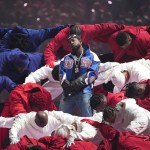What’s rewarding about moderating a panel discussion is that you can encourage brilliant discussions. What’s disappointing is that you’re so focused on what the panelists are saying that you can’t write any of them down.
Our panel discussion at Indie Author Day in Anaheim, “AI—Does It Have a Place in the Writers’ World?” was filled with that type of brilliant, thoughtful discussion. The panelists—Rachel Beck, Melissa Adylia Calasanz, and Jessica Valenzuela—brought their experiences, expertise, and a range of opinions about generative AI to a discussion that was civil and informative. We went on for our allotted hour (and ran a few minutes over), but we could have gone on for a couple more.
I wished I could have captured everything these panelists said, but it was Melissa’s final answer that drove home the point for all of us.
Melissa spoke from her experience as a SAG-AFTRA union member, actor, and voice-over artist. She brought up how SAG-AFTRA was aware of issues regarding generative AI and protecting the rights of artists over the use of their voice and likenesses a decade before the rest of society was aware of these issues. She also spoke about her experiences as a wilderness guide. She learned how to navigate using the stars and offer first aid when people are hours away from a hospital. She told us that if the grid ever went down, she would be able to help her community.
Her point about generative AI is that it can’t replace the need for human connection. That is the fundamental difference between AI and human-created art. AI might be able to approximate real-life art, but it lacks the emotional resonance and lived experiences at the core of human art.
It’s an opinion shared even by advocates for AI. I recently took a class on generative AI at my company, which uses generative AI features in many of its products. The instructor said, “AI makes a very good parrot. It can repeat things it hears, but it doesn’t understand things that it says.”
Therein lies one of the major problems with generative AI, which Rachel described as model collapse. Large language models (LLMs) used by ChatGPT, Google Gemini, and other generative AI engines depend on human-created and moderated content to provide accurate results. When it runs out of human content, it starts making up its own. This is where generative AI creates wildly inaccurate results. The way to combat false and biased information generated by AI is to check sources, as Jessica described.
We all need to develop media literacy and critical thinking skills, which are often overwhelmed by the volume of rumors and disinformation we get on all forms of media. Amanda Prosin, the Reseda Charter High School librarian, has made media literacy and disinformation part of her curriculum. She said this in my interview:
It is important to remember that AI uses what it has been given. Therefore, it is often full of biases because the information it was trained on has biases. For example, if it was given information from the past, it learns that women earn less money than men. It will probably perpetuate that inequality.
Another important thing to know about AI is that if it does not have an answer in its information, it often creates one. This means that if a user asks for a quote and citation about something, AI may make up a quote and the citation it comes from. It may have a real author, but create the book this fake quote comes from. When AI gives fake information or makes up something, it is called a hallucination.
(You can read more in Part 2 of my interview, which comes out in my November newsletter. Subscribe here.)
What I’ve learned from over 40 years in the computer industry is that no technology lasts forever, and industry titans of today may disappear in a few years. Today, we’re talking about a bubble in generative AI, the same way there was a dot-com bubble in 2000, and the video game bubble in 1983. What will remain is human-created art that expresses human emotions to create human connections. No technology that has or ever will be created can ever replace that.
Pictured at top: Panelists at the Indie Author Day panel (L-R): Matthew Arnold Stern, Rachel Beck, Jessica Valenzuela, and Melissa Adylia Calasanz





